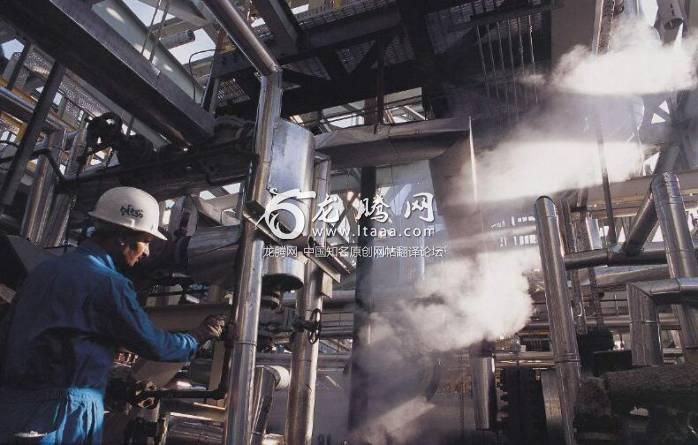印度能达到中国那样的工业化程度吗? [美国媒体]
quora网友:中国能快速工业化是因为饥渴的客户美国需要中国生产的任何产品。考虑到美国越来越谨慎和向内看,那么印度的工业化谁来支持?第二,在喂饱美国后,中国还有能力满足世界其他国家,因此这在生产和价格方面赋予了中国优势......
Will India industrialize to the same extent as China?
印度能达到中国那样的工业化程度吗?
Ray Gordon, studied Economics at Michigan State University
Answered 7h ago
It is possible to the same extent but not at the same speed.
China had some of the fastest industrialization on Earth in times of speed and scale due to a combination of:
Rapid and effective government policies
A relatively favorable environment for export based industrialization (Globalization, free trade, Western countries willing to absorb large job losses through trade deficits, etc…)
Huge FDI from Greater China (Taiwan, HK) that enabled this
Great infrastructure that was the backbone of all these factors
Lack of competition from other industrial leviathans like China
I’ve already explained here the reasons why export-based industrialization is starting to fade: Ray Gordon's answer to What is the economic future of Pakistan?
What I’ve often heard is: India is a big country that has a lot of cheap labor, all we need to do is make our politics more pro-Business and everything will magically resolve itself.
This type of thinking is naive, simply put, India does not have the required political environment, infrastructural capacity, favorable global environment, nor the required government efficiency to sustain rapid industrialization. The same favorable global trends (globalization, free trade, booming Western economies willing to absorb trade deficits, lack of feasible automation) are not here anymore, and India will need at least a decade or two of heavy infrastructure buildup to be competitive beyond extremely low wage low valued added goods. India doesn’t have the resources to do these things.
It is possible that India will achieve a similar level of industrialization but I simply don’t see it happening as quickly as China did.
269 Views · View Upvoters
是有可能的,但是速度没中国那么快。
中国的工业化在速度和规模上可谓世界第一,原因如下:
快速和有效的政府政策
建立在出口基础上的工业化拥有有利的环境(全球化,自由贸易,西方国家愿意通过贸易逆差吸收大量的就业损失等等)
来自大中华区的外国直接投资(台湾,香港)
良好的基建
没有其他工业强国的竞争。
我经常听人们说:印度是一个拥有大量廉价劳动力的大国,我们需要做的就是建立良好的商业环境,届时一切问题都会迎刃而解。
这样的想法是很幼稚的,简单来说,印度不具备所需要的政治环境,基建设施,有利的全球环境,政府效率也不高,无法维持快速的工业化。同样的有利条件(全球化,自由贸易, 繁荣的西方经济愿意吸收贸易赤字,可行的自动化的缺乏)已经不再,除了低工资和低附加值产品外,印度至少还需要一二十年时间建造基建,这样才具备竞争力。但是印度没有资源这么做。
印度是有可能取得类似的工业化水平,但是在实现速度上应该没中国那么快。
Nilesh Kamath, Film Producer at Los Angeles (1993-present)
Answered Apr 12, 2017
CHINA could industrialize rapidly because it had a willing & hungry customer called US to gobble up whatever it could produce. Given that US has turned more circumspect & inward looking, who will don the mantle of the US were India to go on industrialization spree? Secondly, even after feeding the US, China has unused excess capacity to cater to the rest of the World, which obviously gives China the edge both production wise & price wise.
So if India is purely going to ramp up just to cater to its domestic markets, then there is very little incentive for the business’s to ramp up their capex unless, the GoI steps in & offers big subsidies. But that means we will be turning back the clock and revisiting the old license Raj days.
So unless the Demographic projections of the experts holds true, there is very little India can benefit by rapidly industrializing. India’s best bet is to think out of the box, and instead of emulating China’s success, create openings where China is at its weakest, by creating a world class service & knowledge based economy. India needs to learn from Singapore not China.
678 Views · View Upvoters
中国能快速工业化是因为饥渴的客户美国需要中国生产的任何产品。考虑到美国越来越谨慎和向内看,那么印度的工业化谁来支持?第二,在喂饱美国后,中国还有能力满足世界其他国家,因此这在生产和价格方面赋予了中国优势。
所以印度如果只是为了满足自己的国内市场,那么企业几乎是没什么动力来增加自己的产量,除非政府介入,提供大量的补贴。但那意味着我们在拨回时间,重走老路。
所以除非专家的人口预测是真的,否则印度的快速工业化所获得利益将会很少。印度最好是摆脱条条框框,与其模仿中国的成功,还不如在中国最脆弱的地方另辟蹊径,创造世界级的服务和知识经济。印度应该向新加坡学习而不是中国。
Jeffery Zhang
Wed
India will not get rich off of service/knowledge jobs because by definition the moat for these jobs are low. Whatever competitive advantage you have in these fields are limited to what you can accumulate over one working life, whereas the advantages in manufacturing and capital intensive industries can be accumulated over multiple generations.
India can only compete in service jobs as long as its labor costs are cheap. There is no way of improving service productivity and competitiveness at the same rate as for manufacturing by investing in better machinery. Pursuing a service oriented economic development strategy will guarantee that India falls into the Middle Income Trap.
印度无法通过服务和知识岗位变得富有,在这些领域所具有的竞争优势只限于一代人,而在制造业和资本密集型产业里的优势可以是几代人的累积。
只要印度的劳动力成本是廉价的,那么印度只能在服务岗位具备竞争力。服务业的生产力和竞争力的提升速度是无法跟上制造业的提升速度的。以服务业为导向性的经济发展战略将使得印度陷入中等收入陷阱。
Jeffery Zhang
Answered Wed
No, the earliest countries to industrialize reaped the greatest profits. Each subsequent round has to compete with the already industrialized countries so the profits are lower than the previous round.
Before China industrialized, only 1/5th of the world lived in industrialized countries. China’s industrialization brought that up to 2/5th. China has so much spare industrial capacity the profit margins in many industrial sectors are close to 0 or even negative. This makes industrialization basically unprofitable for anyone else. Countries that try to industrialize after China would find themselves poorer rather than richer by industrializing because they would not be able to pay for the cost of industrialization with the profits.
不能,最早进行工业化的国家收货了最多的果实。那些后来的工业化国家必须和已经工业化的国家竞争,所以可以获得好处比之前的要低。
在中国工业化之前,只有五分之一的世界人口生活在工业化国家。中国的工业化使得这个数字达到了五分之二。中国拥有太多过程的工业能力,所以很多行业的利润空间接近于0,甚至是负数。这使得其他国家的工业化几乎毫无利润可言。在中国之后进行工业化的国家会发现自己比原来更穷了,因为他们工业化的成本比利润还高。
版权声明
我们致力于传递世界各地老百姓最真实、最直接、最详尽的对中国的看法
【版权与免责声明】如发现内容存在版权问题,烦请提供相关信息发邮件,
我们将及时沟通与处理。本站内容除非来源注明五毛网,否则均为网友转载,涉及言论、版权与本站无关。
本文仅代表作者观点,不代表本站立场。
本文来自网络,如有侵权及时联系本网站。
图文文章RECOMMEND
热门文章HOT NEWS
-
1
Why do most people who have a positive view of China have been to ...
- 2
- 3
- 4
- 5
- 6
- 7
- 8
- 9
- 10
推荐文章HOT NEWS
-
1
Why do most people who have a positive view of China have been to ...
- 2
- 3
- 4
- 5
- 6
- 7
- 8
- 9
- 10











